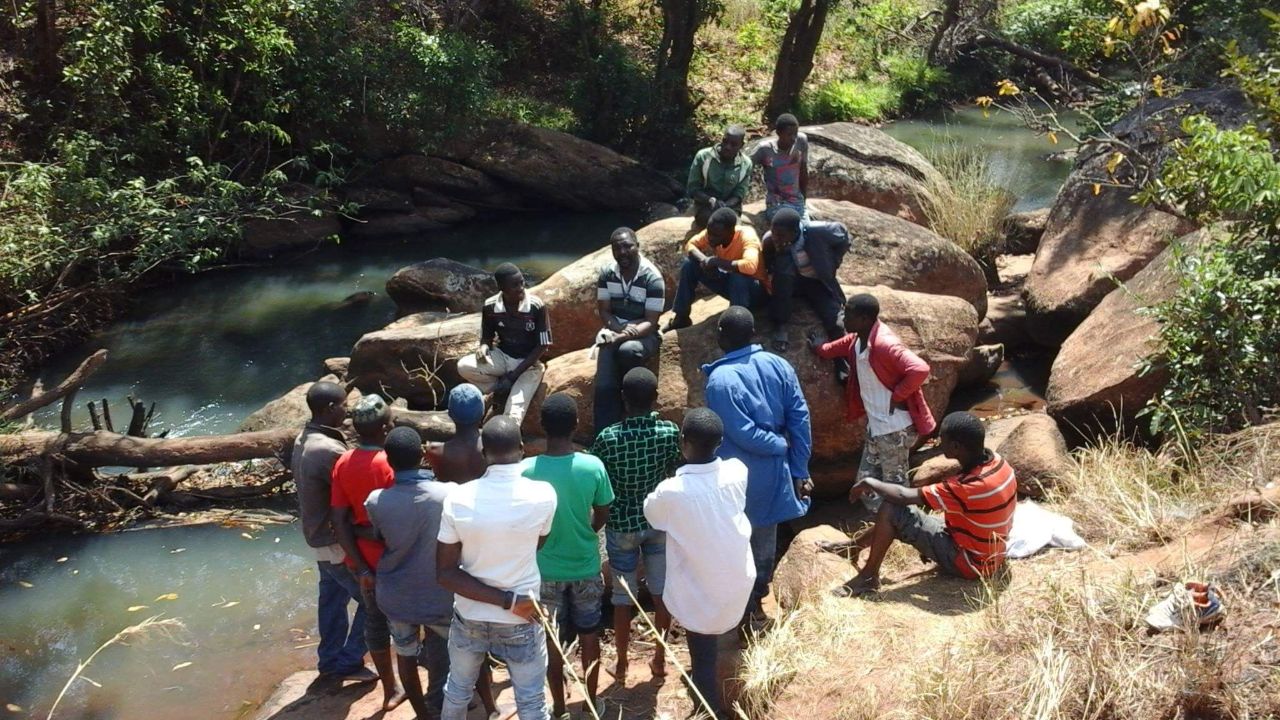“Here is water! Can you baptize me?” Philip was asked this question by the Ethiopian (Acts 8:36). Without hesitation, he immediately took action to help this new believer obey Jesus’ command. I wonder if we would have done the same. We may have said, “I’m not sure I am allowed to do that. I need to find an ordained pastor or leader. Or maybe, let’s wait a few months until Peter comes through. He can baptize you. Wait…you won’t be anywhere near Peter, will you?? Oh well, you can get baptized in a few years when you come through again.”
Big questions arise around the issue of baptism. When faced with these situations we often simply don’t baptize people, though it was part of the clear command of Jesus in the Great Commission. Remember He said, “…go, make disciples, baptize them, and teach them to obey”?
Let’s look at these common questions:
- Who can baptize others?
- How do you know if someone is ready to be baptized?
- Can someone be considered a “believer” or “disciple” if they don’t desire (or are not willing to take) this step of obedience?
These are very important questions for someone trying to start a Disciple Making Movement (DMM). This article will address the first of these. At the end, we will link to other articles related to the others questions.
Who Can Baptize?
We’ll start with the “Who can baptize?” question. Let’s consider the scripture referenced above, as we begin.
35 “Then Philip opened his mouth, and beginning from this Scripture he preached Jesus to him. 36 As they went along the road they came to some water; and the eunuch *said, “Look! Water! What prevents me from being baptized?” 37 [[i]And Philip said, “If you believe with all your heart, you may.” And he answered and said, “I believe that Jesus Christ is the Son of God.”] 38 And he ordered the [j]chariot to stop; and they both went down into the water, Philip as well as the eunuch, and he baptized him.”(Acts 8:35-38 NASB)
In this passage, Philip baptized the eunuch immediately after he shared the gospel with him. Was Philip an apostle? No. He was an ordinary believer who shared good news and then took the next natural step. He didn’t wait for Peter, John, or James. The eunuch was ready and he knew his authority as a priest of God. He didn’t hesitate to baptize this government official.

Baptism In Remote Areas
I heard a story once of new believers in the high mountains of Nepal. They lived above the tree line. To go to their village, it required six days of walking on narrow mountain paths. The new believers had come to faith, but as they considered baptism, they faced a difficulty. There was a shortage of water in the village. It had to be carried by yaks from the river far below. There was also a shortage of “qualified” people who could do the baptism (according to the traditions of churches in their country). The pastors back in Kathmandu didn’t have time to trek many days up a mountain to baptize these people!
What were they to do? Some of the national church planters who had taken the gospel there originally were from a Baptist church background. “They need to be immersed!” they thought. There was also the problem of how cold the rivers in those mountains were, even if the trek down the mountain was made. Some of those who had believed were quite old.
Tradition Versus Obedience
Traditions are not bad things in our lives. I love certain traditions, especially at Christmas time. Before we open gifts, we always read the Bible story and our kids always take turn handing out the gifts while wearing a Santa hat. Traditions make things feel special, “normal” and somehow “right.” I love the old movie, Fiddler on the Roof, and Tevye’s song “Tradition!”
I’m not against honoring of church traditions, be they ancient or modern. What I don’t like is when they prevent disciples from being obedient to Jesus’ commands.
In reality, this issue comes down to what you chose to value most in your discipleship process. Will you choose to value church traditions more highly than obedience to Christ’s command? Or will you value the example of scripture like where Philip (not one of the 12 apostles but a lay person) baptized someone immediately? Will you place a high value on serving the new disciples so they can take steps of obedience? Will you think more about the consequences of not following a church tradition may have on your reputation? Or about the goal of seeing a movement begin?
Fear Of Man Is Bondage
Fear keeps us in bondage. The fear of man and the fear of God don’t mix. We need to place an extremely high value on obeying Jesus’ command given in Matthew 28:18-20. He told us there to make disciples and baptize them. This scripture applies to all believers.
“We all are to go. Everyone can make disciples. All can baptize.”
Wouldn’t Jesus have made it clear in the Great Commission if the part about baptizing was only for specially trained people?
Let’s not make it difficult for new disciples to take this step by limiting who can baptize them. Don’t make it difficult for disciples to become disciple-makers and to obey the Great Commission. Fear of the traditional church around us is in direct contrast with faith in God’s ability to fulfill His promises.
The Reward Is Worth The Cost
You may face some opposition from people who don’t understand. They might even call you a heretic if you begin to practice Jesus style, Book of Acts style, evangelism, and disciple-making. Don’t be surprised if this happens. It is a price we must be willing to pay. The rewards are great, however! You will see many more beautiful people welcomed into the Kingdom, their lives transformed.
Are there people in your discipleship group who haven’t yet been baptized? Those you’ve led to the Lord who haven’t taken this important next step of obedience? Ask yourself why.
Baptize those new believers this week! And release others to baptize too!
For other articles on baptism issues check out the links below:
Baptism Questions- If They Don’t Take It, Are They A “Believer” Or Not?



Comments
Pingback: What Does It Mean To Be Baptized? - WHEN LOVE COMPELS
Pour moi baptisé c’est de mourir avec Jésus et ressuscité avec Jésus. De plus par rapport à cette formation basé sur Mathieu 28:19-20, ma compréhension par rapport au baptême est le fait de passer du volet croire au volet obéissance. Cette action de se baptiser permette d’avoir une compréhension claire sur l’obéissance.
For me, being baptized means dying with Jesus and being resurrected with Jesus. Furthermore, in relation to this training based on Matthew 28:19-20, my understanding in relation to baptism is the fact of passing from the believing aspect to the obedience aspect. This action of being baptized allows you to have a clear understanding of obedience .
My understanding is ushering a person from the old nature of sin to a new royalty of the kingdom of God and the acceptable way of cleansing and chastisement in order to receive the Holy Spirit, because even when the gentiles accepted the words of Christ he ordained them be baptized and afterwards the Holy Spirit came upon them.
Interesting and impactful. How I wish I could the teachers one on one.